Maryland
Maryland’s governor signs Freedom to Read Act
Maryland Gov. Wes Moore on Thursday signed a bill that seeks to combat efforts to ban books from state libraries
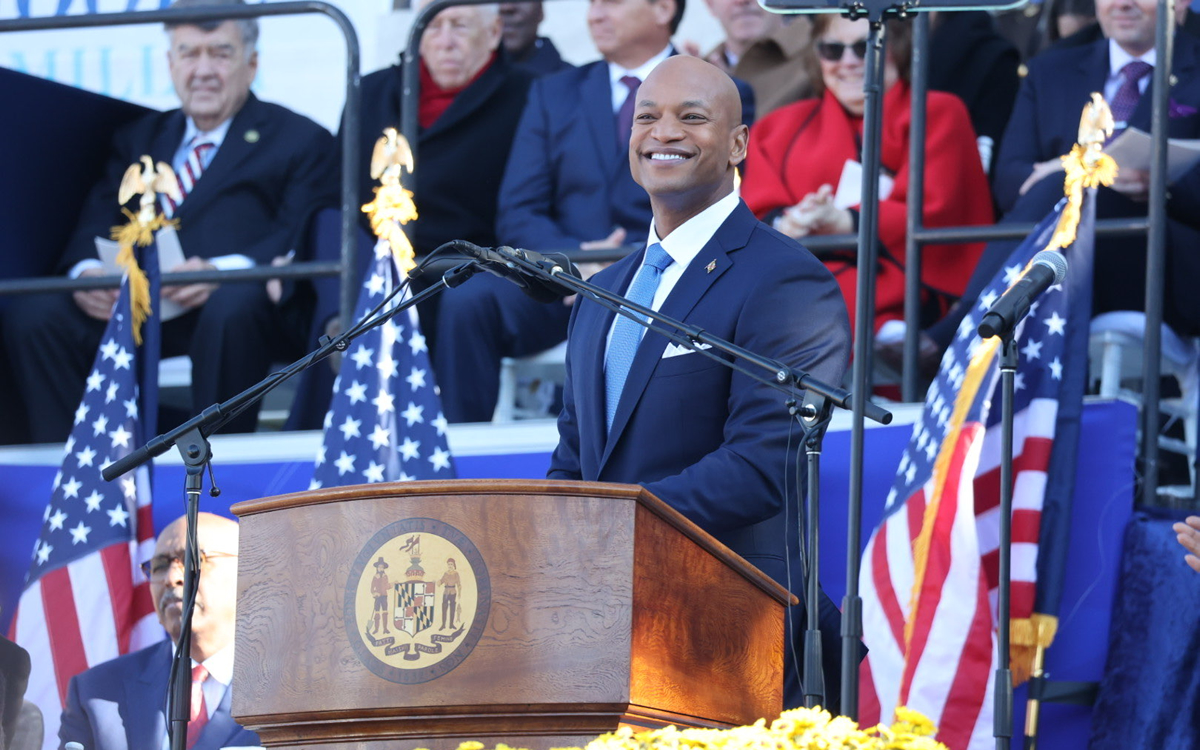
ANNAPOLIS, Md. – Maryland Gov. Wes Moore on Thursday signed a bill that seeks to combat efforts to ban books from state libraries.
House Bill 785, also known as the Freedom to Read Act, would establish a state policy “that local school systems operate their school library media programs consistent with certain standards; requiring each local school system to develop a policy and procedures to review objections to materials in a school library media program; prohibiting a county board of education from dismissing, demoting, suspending, disciplining, reassigning, transferring, or otherwise retaliating against certain school library media program personnel for performing their job duties consistent with certain standards.”
Moore on Thursday also signed House Bill 1386, which GLSEN notes will “develop guidelines for an anti-bias training program for school employees.”
Maryland
Larry Hogan speaks with the Washington Blade
Republican former Md. governor defends LGBTQ rights, abortion records
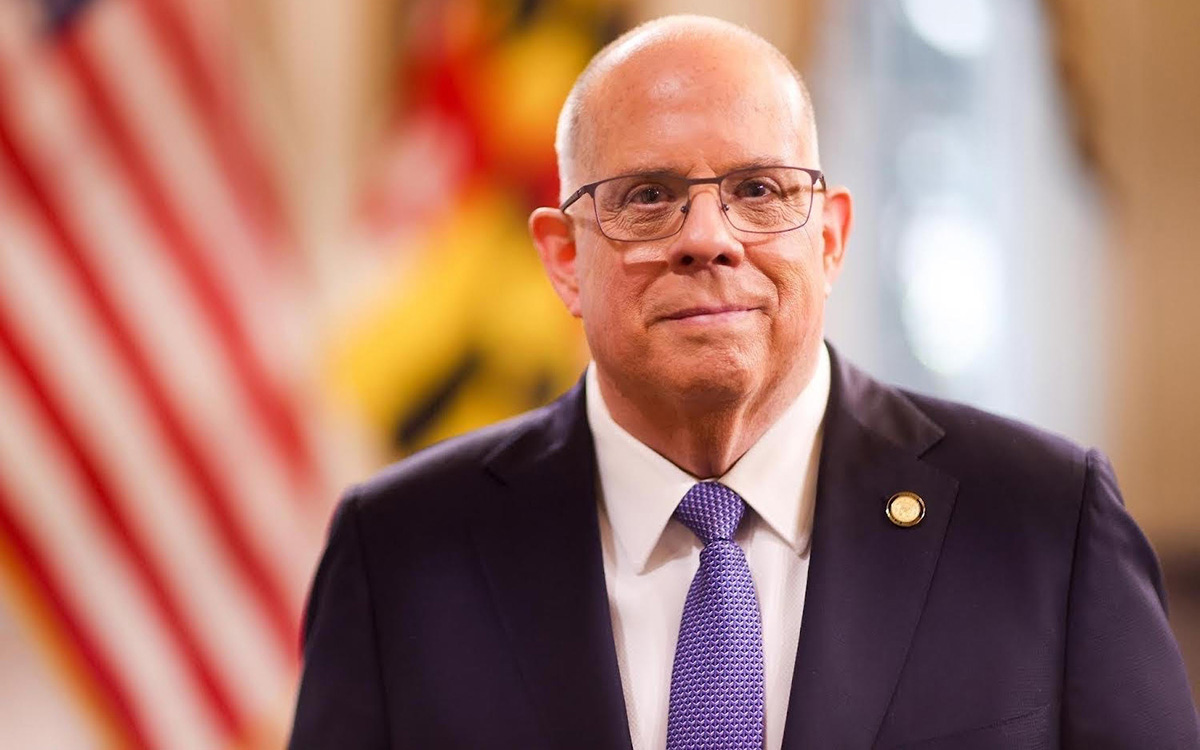
Republican former Maryland Gov. Larry Hogan in a written interview with the Washington Blade discussed his decision to run for the U.S. Senate and defended his record on LGBTQ rights.
“It’s more important than ever to have strong, independent leadership at every level of government bringing people together and fighting for the exhausted majority,” said Hogan in response to the Blade’s questions that his campaign sent on July 30. “Marylanders know me, and they know I was proud to represent all Marylanders as governor, and that’s exactly what I’ll do in the U.S. Senate.”
Hogan was Maryland’s governor from 2015-2023.
He defeated then-Lieutenant Gov. Anthony Brown, who is now the state’s attorney general, by a 52-46 percent margin in 2014. Hogan four years later defeated former NAACP President Ben Jealous by a 56-43 percent margin.
Hogan in March 2023 said he would not run for president. He announced in February that he is running for retiring U.S. Sen. Ben Cardin (D-Md.)’s seat.
Hogan in May easily won the Republican primary. He will face off against Democratic Prince George’s County Executive Angela Alsobrooks in November. The outcome could determine whether Democrats maintain control of the Senate.
“I like the county executive and respect her — we worked together on a number of things as governor,” said Hogan, referring to Alsobrooks. “We just have fundamental disagreements on the issues, and how we approach things. I’m committed to taking an independent approach, challenging hyper-partisanship, and getting the country back to decency and common sense.”
Former governor defends LGBTQ record amid criticism
Hogan in 2018 signed a bill that banned so-called conversion therapy in Maryland. Hogan during a 2023 interview with CNN’s “State of the Union” criticized Republican Florida Gov. Ron DeSantis over his state’s “Don’t Say Gay” law he signed.
A bill that created the Commission on LGBTQ Affairs in the Governor’s Community Initiatives Office took effect in 2021 without Hogan’s signature.
Hogan also did not sign a bill that banned the so-called LGBTQ panic defense in Maryland.
That law also took effect in 2021.
Hogan spokesperson Blake Kernen further elaborated on the former governor’s LGBTQ rights record.
“After calling for ‘tolerance and mutual respect’ in his inaugural address, Gov. Hogan supported LGBTQ community priorities throughout his time in office,” Kernen told the Blade. “As some examples, he enacted legislation to ban the practice of conversion therapy, and he upheld and strengthened the state’s anti-discrimination protections — including allowing measures to take effect that extend IVF treatment coverage to same-sex couples, allow transgender Marylanders to revise their birth certificates, ban the ‘gay panic defense,’ and make it easier to prosecute hate crimes.”
(The panic defense ban bill became law without Hogan’s signature.)
Kernen pointed out Hogan appointed the first openly LGBTQ person to serve as a chief judge on a Maryland appellate court.
Hogan in 2022 named E. Gregory Wells as chief judge of the Court of Special Appeals. Wells, who is also Black, is also the first African American person named to the position.
Kernen also noted to the Blade that Hogan “appointed the first members and administrative director of the” Maryland Commission on LGBTQ Affairs. (The law took effect in 2021 without Hogan’s signature.)
“He signed anti-bullying laws, and championed numerous initiatives to combat bias and hate crimes–including increased funding, and expanded community and school resources,” said Kernen.
“In January 2023, when Gov. Hogan left office, the state continued to have the Human Rights Campaign’s highest rating for Working Toward Innovative Equality,” he added. “Maryland has a bipartisan legacy of supporting the LGBTQ community, and Gov. Hogan looks forward to building on this work in the Senate.”
Hogan on June 1 participated in the Annapolis Pride parade.
Democratic Gov. Wes Moore also took part. An Alsobrooks campaign spokesperson told the Blade that she was unable to attend, but many of her campaign volunteers and supporters marched in the parade.
“We’re grateful to Annapolis Pride for giving candidates the opportunity to take part in their festival,” said Hogan. “I wish County Executive Alsobrooks had been able to join us, but it was an outstanding parade, and a true testament to the spirit of the community.”
HRC last month endorsed Alsobrooks.
HRC President Kelley Robinson in a statement said Alsobrooks “has always been a champion for equality and freedom, from her support for the state law that legalized same-sex marriage in 2012, to becoming the first Maryland county executive to authorize flying the Progress Pride flag over county buildings, and much more.”
Alsobrooks throughout her campaign has highlighted abortion rights within the context of the U.S. Supreme Court ruling that struck down Roe v. Wade. Alsobrooks during interview with the Blade before the May 14 Democratic primary noted Hogan’s “well-known position as a person who is not pro-choice.”
Kernen in a May 22 statement criticized Alsobrooks over her comments about Hogan’s abortion rights record.
“Governor Hogan protected choice in Maryland for eight years, funding access to abortion in the budget every year and being the first governor in America to provide over-the-counter birth control paid for by Medicaid,” said Kernen. “He said in 2019, Roe was rightly decided and has been on the record against a national abortion ban since 1992.”
“He rightly vetoed legislation to allow non-licensed medical professionals to perform abortions because that would have lowered health care standards for women,” added Kernen. “In the Senate, instead of playing politics with this issue, he will work to reinstate Roe v. Wade as the law of the land. Marylanders know that when Gov. Hogan gives his word, he keeps it, and that is why voters continue to reject these same tired, false, and fear-mongering attacks.”
Attempted Trump assassination was ‘terrible tragedy’
Hogan remains a vocal critic of former President Donald Trump.
He did not support Trump in 2016 or 2020. Hogan also did not attend last month’s Republican National Convention in Milwaukee.
Trump in June endorsed Hogan for Senate. Kernen said the former governor “didn’t seek the endorsement, and has no interest in it.”
Trump on July 13 survived an assassination attempt during a rally in Butler, Pa.
Hogan described the assassination attempt as a “terrible tragedy.” He added the country is “at a dangerous inflection point — our nation is like a tinderbox right now.”
“I’ve long been a proponent of lowering the temperature and finding a way to do away with the divisive rhetoric and the angry, toxic politics,” said Hogan.
The Blade asked Hogan whether he thinks the country can unify in the wake of the assassination attempt.
“When I travel the state meeting Marylanders, they give me hope,” he said in response to the question. “If politicians and pundits were more like regular people, our whole nation would be in a better place.”

A Public Policy Polling poll conducted between June 19-20 found Alsobrooks ahead of Hogan by a 45-34 percent margin. Hogan would be the first Republican from Maryland in the U.S. Senate since Charles Mathias retired in 1987 if he wins in November.
“I think a lot of voters, both Republicans and Democrats, want strong independent leaders who will clean up the mess in Washington,” Hogan told the Blade. “They know me, and they know I’m that guy.”
“The pundits said for a long time the Hogan brand of politics is dead, but every time we prove them wrong,” he added. “I know I’m the underdog, but I’m seeking to prove them wrong again.”
Hogan responded to the Washington Blade’s questions before Vice President Kamala Harris chose Minnesota Gov. Tim Walz as her running mate.
“I want to extend my congratulations to Gov. Walz on being selected as the Democratic vice presidential nominee,” said Hogan on Tuesday in a statement. “We had the chance to work together as fellow governors, and while we come from different parties, I have always appreciated his dedication to public service. I believe we need more governors at the national level because governors have to actually get stuff done. I wish Tim and his family well in the campaign ahead.”
Maryland
Baltimore Pride event disrupted causing panic & injuries
A possible chemical agent was released in front of the main stage at the Baltimore Pride Parade and Block Party
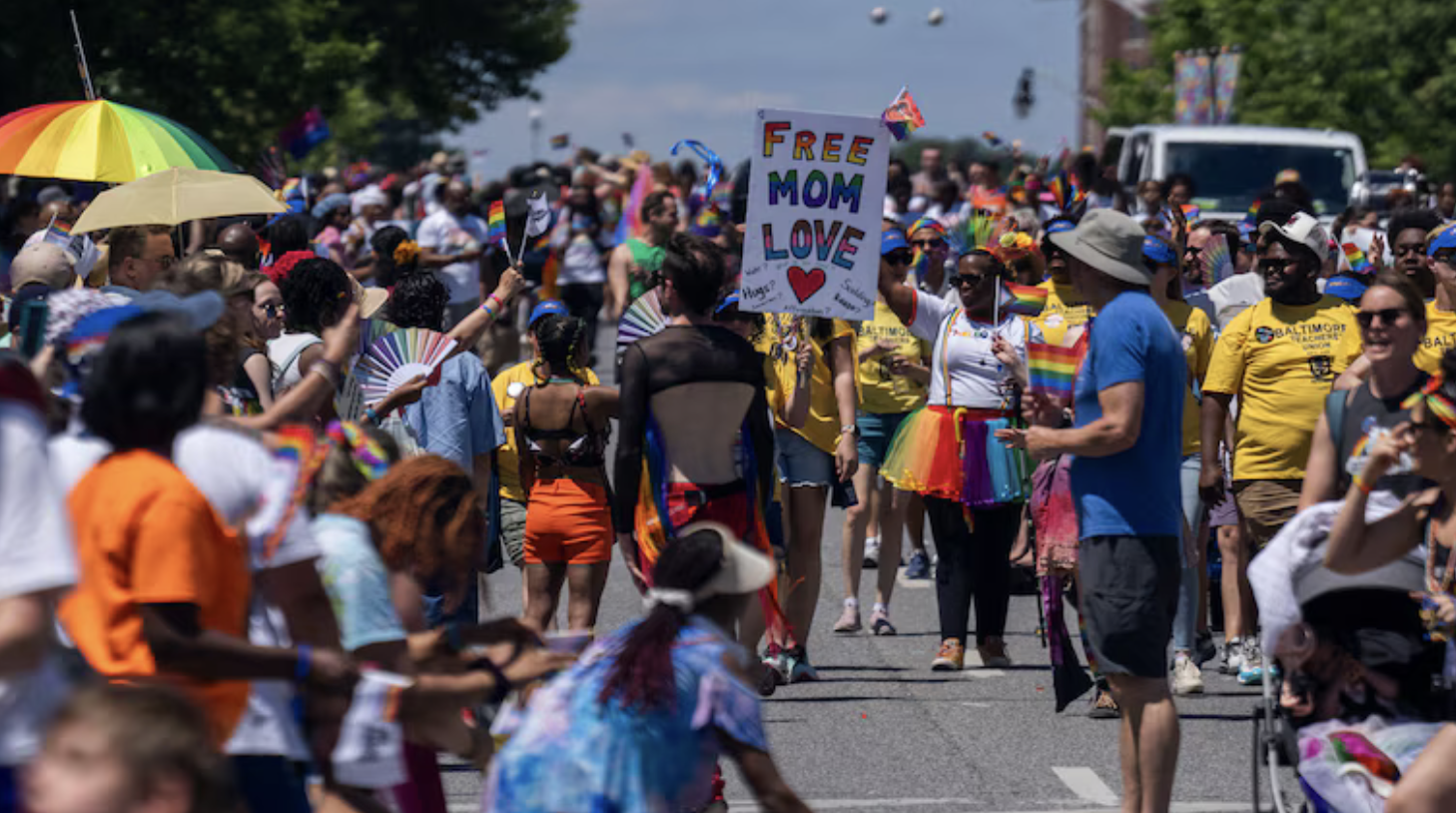
By John-John Williams IV and Brenna Smith | BALTIMORE, Md. – A possible chemical agent was released in front of the main stage at the Baltimore Pride Parade and Block Party on Saturday night, causing a stampede.
The incident occurred around 7 p.m. and police did not release the chemical agent, according to a spokesperson. The main stage for the event was located near North Avenue and Charles Street.
“The event was closed. The fire department responded and was tending to several injuries from the mass exodus,” a spokesperson for the police department said Sunday morning. Online social media posts suggest the chemical agent was mace. These posts allege it was sprayed after a fight broke out, prompting panic and the stampede.
Editor’s note: The rest of this article can be found on the Baltimore Banner’s website.
******************************************************************************************
The preceding article was previously published by The Baltimore Banner, a media partner of The Washington Blade and is republished with permission.
Maryland
Beloved gay neighbor remembered by a Maryland neighborhood
The sign was vandalized numerous times last fall, resulting in neighborhood residents taking turns repairing it

By Sean Koperek | SILVER SPRING, Md. – Residents of Silver Spring Maryland’s Rosemary Hills neighborhood, in suburban Washington D.C., have come together to rebuild a Pride sign.
The sign was constructed in June 2020, and was meant to stay in place throughout Pride Month. Neighborhood residents, however, requested it stay up past its intended month-long display, and has remained in place for more than four years.
The sign spelling LOVE is at the neighborhood’s entrance between Sundale and Richmond Streets. It was made from plywood and the O was painted in the colors of the Pride flag.
“We wanted to take it down, but we just felt it was not ours anymore and belonged to the neighborhood.” Tony Brown told the Washington Blade during a telephone interview. “It was a positive thing for the neighborhood and began to take on a life of its own.”
Brown and his partner, Mike Heffner, designed the sign and said the Black Lives Matter movement inspired them to create it as a strong symbol of an accepting community.
The sign was vandalized numerous times last fall, resulting in neighborhood residents taking turns repairing it. Brown and his partner could not do the repairs themselves because Heffner was fighting Stage 4 lung cancer.
Heffner passed away on Oct. 6, 2023.
A GoFundMe page was set up to help raise funds for the replacement Pride sign, and it has raised more than $4,000. The replacement sign is more permanent and made of metal.
“I can’t speak for the neighborhood overall, but people who knew Mike I think are happy that we were able to honor his memory with this sign because this sign is so him,” Molly Chehak, a friend who lives next door to Brown, told the Blade. “He (Heffner) was an outgoing super social (person) who just made you feel good the way this sign does. It’s a perfect tribute to him.”
Chehak and other neighbors created the GoFundMe account.
Heffner’s family and his neighbors are still working to rebuild the Pride sign. It has become a memorial to Heffner.
“We wanted to do one that was clearly a Pride reference,” said Brown, noting the L is a fully painted Pride flag that spirals across the entire letter.
“For the O we wanted to do something reminiscent of times in the past, a throwback to the 60’s and 70’s so it’s a hippie montage of flowers and butterflies,” he said.
Brown described the V as being colorful, nonbinary people hugging each other with the idea that love is more than what one may see.
“During COVID, he had started painting rocks and putting kind and fun messages on them leaving them around places as sort of a pay it forward Karma and so the E is basically that stylized writing and to embrace a bunch of ways we embrace love,” he said.
The final letter had the phrase “love is love” written repeatedly in various handwritings to pay homage to Heffner and what he did for his neighborhood during the pandemic. Brown’s four daughters — one of whom is a professional artist — and their friends designed it.
The landscape around the sign has also been transformed with rocks that honors Heffner’s love for Rosemary Hills and his passion for rocks.
Chehak also said Heffner always wanted a bench, and neighbors are looking to install one soon next to the Pride sign.
******************************************************************************************
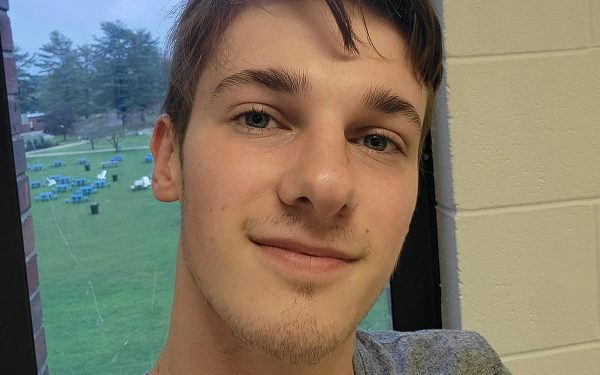
Sean Koperek is a senior at Westfield State University in Massachusetts and is majoring in communications. He is interning with the Washington Blade as part of a continued partnership with the Washington Center.
Maryland
Mayor of Maryland Eastern Shore city cancels Pride flag display
This will mark the first time in five years that a Pride flag will not fly at the city’s office for Pride month
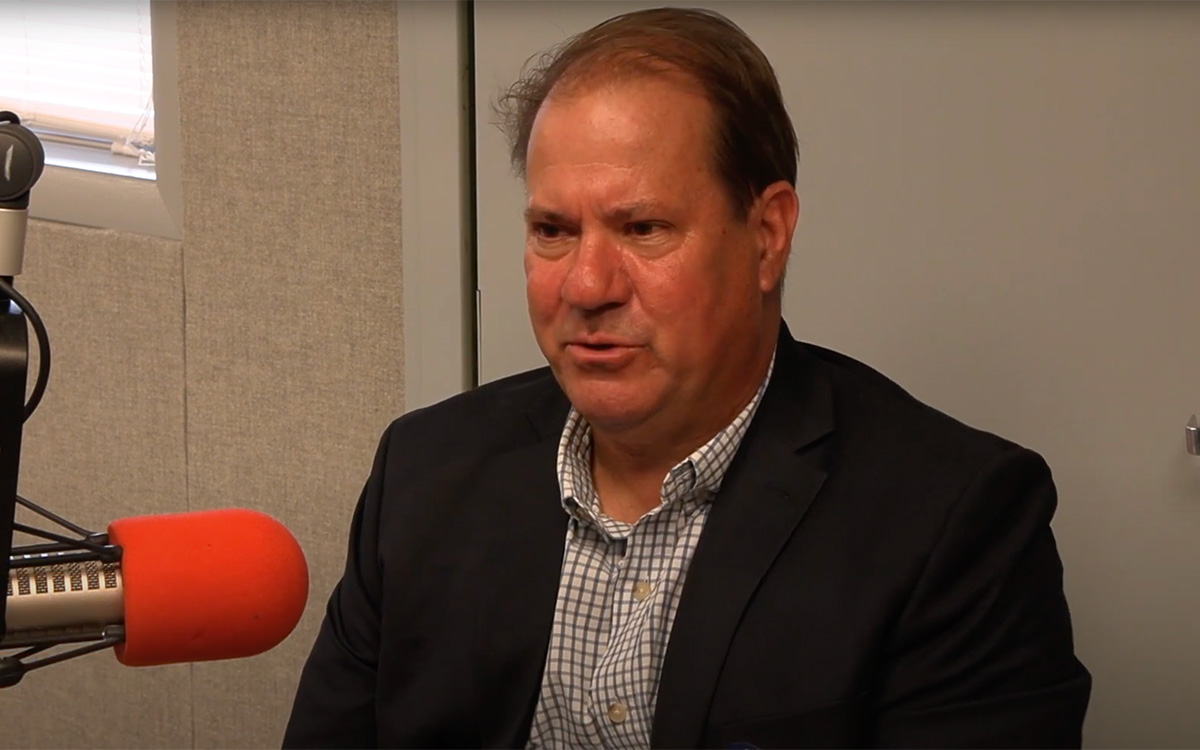
By Joe Reberkenny | SALISBURY, Md. – The City of Salisbury, Md., centrally located on the Free State’s Eastern Shore between the Chesapeake Bay and the Atlantic, will not fly the Pride flag outside the city office building in downtown Salisbury. This will mark the first time in five years that a Pride flag will not fly at the city’s office for Pride month.
Randolph J. Taylor, the mayor of Salisbury, told the Blade that the choice not to raise the flag was based on being “fair” and “transparent.”
“The administration’s position on the PFLAG kick-off is very simple,” Taylor said to the Blade in an email. “That is, to be neutral. Neutrality is not to be interpreted as anything else but simply that — being neutral.“
Taylor explained that the decision to appear more neutral was not to single out one particular group. “This is an approach the City has and will take with any other event held in the City of Salisbury as we entertain more than 100 events a year from a variety of groups and causes.”
Taylor concluded his statement with good wishes for PFLAG, the LGBTQ human rights organization that previously collaborated with the mayor on the flag raising and recently relocated within Salisbury.
“I am glad PFLAG has a new location on Carroll St. for its kick-off,” Taylor said. “The City of Salisbury wishes the event good luck!”
Nicole Hollywood, legislative chair for PFLAG Salisbury, said the decision not to promote cultural events using “city assets,” which includes the city’s flagpoles and street lamps, could impact longstanding celebrations of cultural heritage in the city.
“We simply got an email saying that ‘we’re evaluating the use of city assets for cultural events,’ and ‘we don’t feel it’s appropriate moving forward to hang flags that represent special interest groups,’” Hollywood told the Blade regarding the denied request for flying the flag. “We were disheartened and made a statement saying that the planned event, which has occurred for a number of years always on the same day in the same location, is temporarily postponed until we could find an alternative.”
Hollywood continued, explaining that she, and other supporters of the LGBTQ community, have plans to bring the issue to the city council’s attention. She hopes to get a more standardized approach to the vetting of cultural events, like the Pride flag raising, in Salisbury.
“We do have a request that we’ll be making in front of the city council, which is simply that a structure be put in place that’s uniform and equitable, that’s used to vet applications for flag raisings and other civic and cultural events,” she explained. “It isn’t clear, at this time, who exactly holds authority over city assets.”
In addition to her concerns regarding the current “murky” methods of approval for cultural events, Hollywood also highlighted her fears for the future of the Pride crosswalk in Salisbury.
The crosswalk, which includes the classic rainbow Pride flag, the updated progressive Pride flag (that comprises the colors of the classic Pride flag, transgender pride flag, and stripes of black and brown to recognize people of color in the LGBTQ community), as well as a transgender flag, was the first to be installed in Maryland.
Hollywood fears that if the city re-evaluates the crosswalks, it could be the beginning of the end of outward support for the LGBTQ community on any public land.
“We think that it’s been a beacon of hope to people in the community having this rainbow, the trans, and progress Pride crosswalks,” Hollywood said. “We really want to protect and steward their existence because we know that if they’re painted over, or erased, that it won’t be as easy to get them back.”
Despite the shift in attitude from the city, some in the community have pledged to show their support in full force. The downtown business alliance in Salisbury, which works to foster growth for business in Salisbury, has encouraged its members to fly rainbow flags on private property in solidarity with PFLAG.
“We’re trying to get as many people as possible to feel that they have a voice,” Hollywood said. “To feel that they’re included and to find other ways that we could celebrate queer joy.”
******************************************************************************************
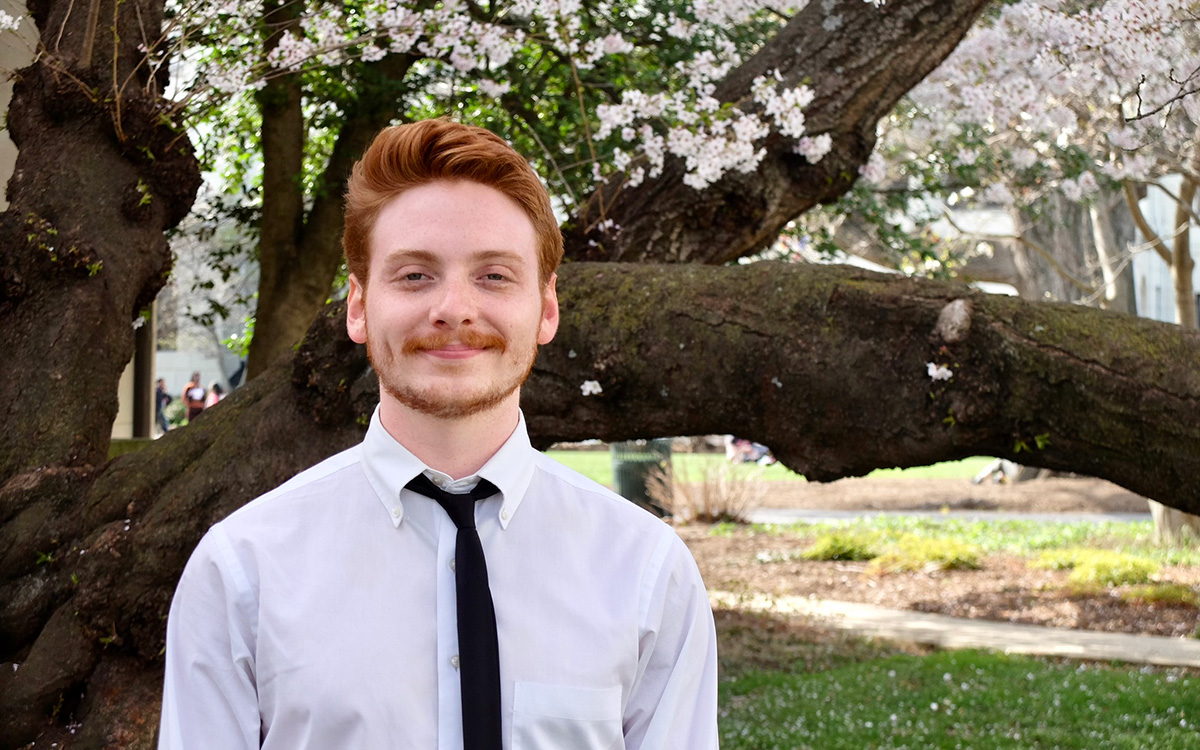
Joseph Reberkenny is a recent graduate of American University and the The Blade Foundation’s recipient of its 2024 Steve Elkins Memorial Fellowship in Journalism. Reberkenny is covering issues of interest to Delaware’s LGBTQ community for 12 weeks this summer for the Washington Blade.
Maryland
A year after Safe Harbor in Maryland, TurnAround & sex trafficking
Perhaps the most striking thing about TurnAround is how large of an operation it is — how large of an operation it needs to be
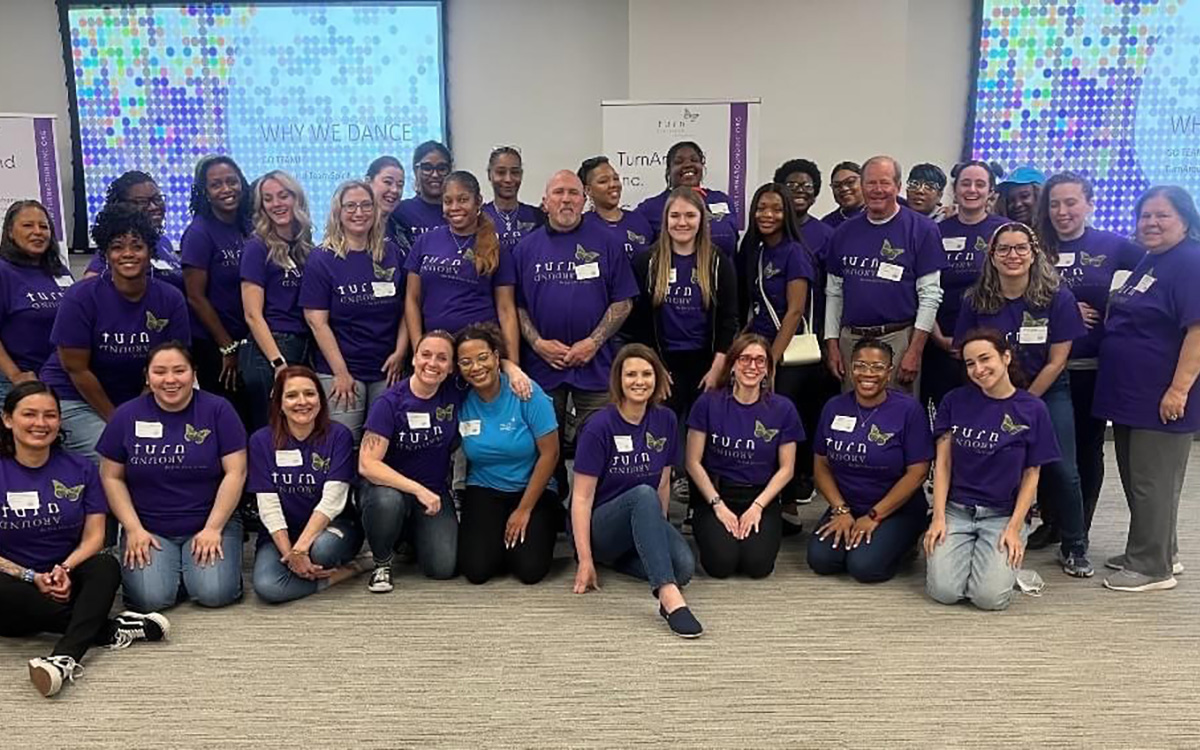
By CJ Higgins | BALTIMORE, Md. -In 2023, the law in Maryland dictated the following: If a child was discovered to be sex trafficked during a sting operation, they were to be arrested, handcuffed, and then incarcerated as a “child prostitute.” One survivor testified to Maryland lawmakers that after being trafficked throughout College Park from ages 12 to 15, it was their ‘rescue’ by law enforcement that was the most traumatizing part of their experience.
In 40 states and in federal law, the sex trafficking of minors was already understood to be a crime committed against children, and not a crime committed by children. When Gov. Wes Moore signed the Safe Harbor law on May 16th of last year, prohibiting the criminal prosecution of sex-trafficked minors, he brought Maryland out of a legal dark age.
How do things look in Maryland a year later? The Washington Blade got in touch with TurnAround Inc., headquartered in Baltimore, to find out. TurnAround is Maryland’s first provider of comprehensive services to survivors of sexual trafficking, Baltimore’s rape crisis center, and a support center for victims of intimate partner violence and sexual violence.
Perhaps the most striking thing about TurnAround is how large of an operation it is — how large of an operation it needs to be. The organization fielded more than 10,000 calls on their hotline in 2022, conducted almost 4,000 counseling sessions, and placed 337 clients in safe shelter: nearly one for every day of the year. But the staff at TurnAround is relieved to see these numbers so high. During the pandemic, there was a steep decrease in reports of sex trafficking.
“[COVID] had a very chilling effect on the number of trafficking survivors that were getting access to services,” said Amanda Rodriguez, executive director of TurnAround. Many of the avenues through which cases were referred to TurnAround simply shut down. The hospitals were inundated with COVID cases, and so weren’t referring anyone; the schools were closed down, and so weren’t referring anyone; and State Attorney Marilyn Mosby stopped prosecuting low-level crimes, which had the unintended consequence of limiting the opportunities law enforcement had to identify youth at risk of trafficking.
In 2020, TurnAround moved into a new office in downtown Baltimore, and it is cavernous — half the floor of a skyscraper. When you walk in, you could mistake the headquarters for a dentist’s office for how calmly the front desk attendant answers the phone. A few lines here and there give away the seriousness of their work: “Is it OK for us to leave a voicemail?” Not every caller’s phone is a safe place.
The office is flanked by a hallway of therapists on one side of the building, who focus on the inner lives of their clients, and a hallway of advocates on the other side, who focus on their outer lives: support in court, government benefits, direct outreach on the streets of Baltimore. At the center are a host of services one would think spread across the whole of the city: a computer center, a clothing donation center, storage for the goods and products needed to survive while in shelter, a kitchen for group meals, and a place to wash and dry your clothes. But the most sobering part of the office is the play center full of toys, for the children that TurnAround serves. “We have clients as young as three years old,” said Jean Henningsen, senior director of strategic initiatives. Some of these children come in as the dependents of adult survivors, but they are sometimes the victims of sexual violence themselves.
“When we were creating Safe Harbor, we looked to see how many kids had been arrested and charged by law enforcement in every county in the state,” Amanda said. “Baltimore City had the highest number at the time. This has changed since then, and is actually getting much better.” The majority of these trafficked kids were trans girls living in the Charles Village neighborhood of Baltimore — a situation that would surprise many Baltimore residents. Charles Village has a reputation for being one of the safest neighborhoods in the city. It is the neighborhood of Johns Hopkins University, which has, in an effort to assuage the concerned parents of its undergraduates, stationed security officers on many of the surrounding street corners. Despite criticism, the university recently partnered with the Baltimore Police Department to create its own police force, and has started recruiting and training officers as of this spring.
“It’s historically been a safer neighborhood for the LGBTQ community in general,” Amanda said. “I don’t know what spurred more nefarious individuals coming in and exploiting people, other than opportunity. Traffickers are just such master manipulators. They will figure out for anybody what their vulnerability is.” But these nefarious individuals are not part of some transnational crime organization. They are sometimes trans women themselves, trafficking these girls to serve their own needs in the home. Often rejected by their families and in search of community, trans girls find this community among other trans women, and then get manipulated into sexual service.
The procedure for dealing with suspected child sex trafficking in Maryland begins with what are called “Regional Navigators,” a role established by the Child Sex Trafficking Screening and Services Act of 2019. Law enforcement agents and local departments of Social Services will notify the county’s Regional Navigator of a suspected trafficking case, and then this Regional Navigator will put together a Multi-Disciplinary Team, or MDT. The MDT consists of all agents and departments that are involved in or have some stake in the case, including Child Protective Services, Juvenile Services, law enforcement, therapists, and schools. These stakeholders will compare notes on what the youth has told them, since they will often have provided different agents and departments with competing descriptions of what’s going on.
While the MDT procedure is highly effective for inter-departmental coordination on a given case, Stephanie Gonzalez, the Acting Regional Navigator for Howard County, explained that the system has some way to go when it comes to LGBTQ youth. “When we get referrals in general, a lot of times, it’s not mentioned how they identify,” she said. As a consequence, their data on how many LGBTQ youth are being trafficked isn’t always accurate, and these youth sometimes aren’t being handled in ways consonant with their sexual or gender identity. And even when these youth are appropriately identified, they aren’t always able to access the appropriate resources.
“We had a transgender female come to us from another state, and she had been trafficked,” Stephanie said. “We had her in a hotel while we looked for other housing options. We could not find trans-friendly housing options.” The women’s shelters they approached didn’t have the requisite training or resources. They would ask insensitive and irrelevant questions about any surgeries the girl had undergone as part of her transition, or require that she be isolated from other women for their safety. “Why are they trying to make it seem like I’m going to hurt someone,” she would ask.
But that situation is changing. TurnAround has partnered with the YWCA of Annapolis and Anne Arundel County to open up a safe house with the resources needed to support any child survivor of sex trafficking. “It’s built!” Jean said. “TurnAround will be staffing it and running it 24/7. Right now there are no children in the facility. We’re still waiting on the final licensing paperwork from the state.”
The project is expensive, with an estimated running cost of $1.5 million each year. TurnAround has partnered with Femi Ayanbadejo, a former Super Bowl winner with the Baltimore Ravens, to help coordinate fundraising. Ayanbadejo advocates for TurnAround with a deep enthusiasm—hearing him talk on the work they do, it could easily be a field-side interview in the final quarter of a game. “If we can reach five, ten, twenty, thirty, forty thousand people that we wouldn’t have with [the Blade’s] reach, maybe there’s one or two foundations that would give five, ten, a hundred, a thousand, maybe a million dollars. Who knows?”
To learn more about TurnAround’s work, visit their website at turnaroundinc.org. If you or someone you know is experiencing sexual violence, TurnAround has offices in Baltimore City, Baltimore County, and Howard County. All three offices can be reached via 410-377-8111.
******************************************************************************************

CJ Higgins is a postdoctoral fellow with the Alexander Grass Humanities Institute at Johns Hopkins University.
Maryland
Maryland poised to become trans sanctuary state
Maryland would become the 12th state to implement such a law to protect trans people if Democratic Governor Wes Moore signs it
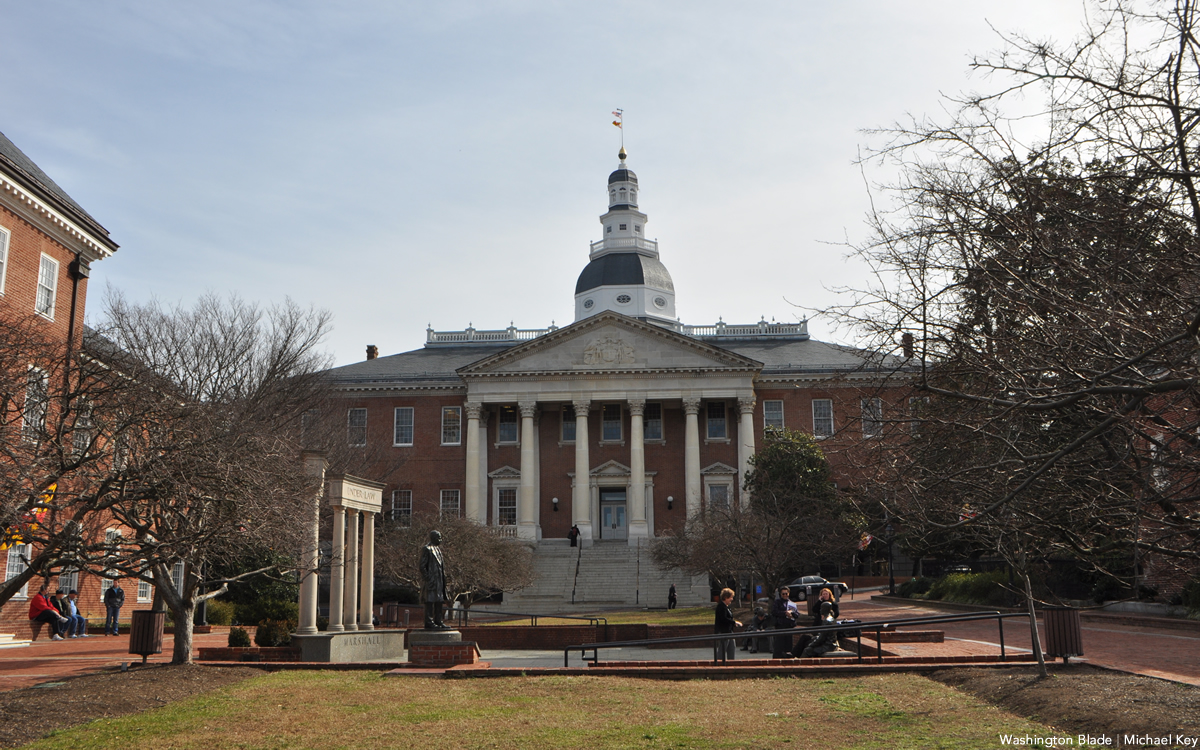
ANNAPOLIS, Md. – A bill that would make Maryland a sanctuary state for transgender people and their health care providers received final approval this week.
The Maryland House of Delegates on April 4 passed a version of Senate Bill 19, the Trans Shield Act, that state Del. David Moon (D-Montgomery County) introduced. The Maryland Senate earlier this year passed SB 19 that state Sen. Clarence Lam (D-Anne Arundel and Howard Counties), Shelly Hettleman (D-Baltimore County) and Jeff Waldstreicher (D-Montgomery County) introduced.
The Washington Blade previously reported Maryland would become the 12th state to implement such a law if Democratic Gov. Wes Moore signs it. D.C. has enacted a similar statute.
Maryland
Baltimore County police arrest suspect in rape of trans female
Baltimore County Police Department’s Special Victims Unit is seeking information from anyone who may have been in contact with this subject
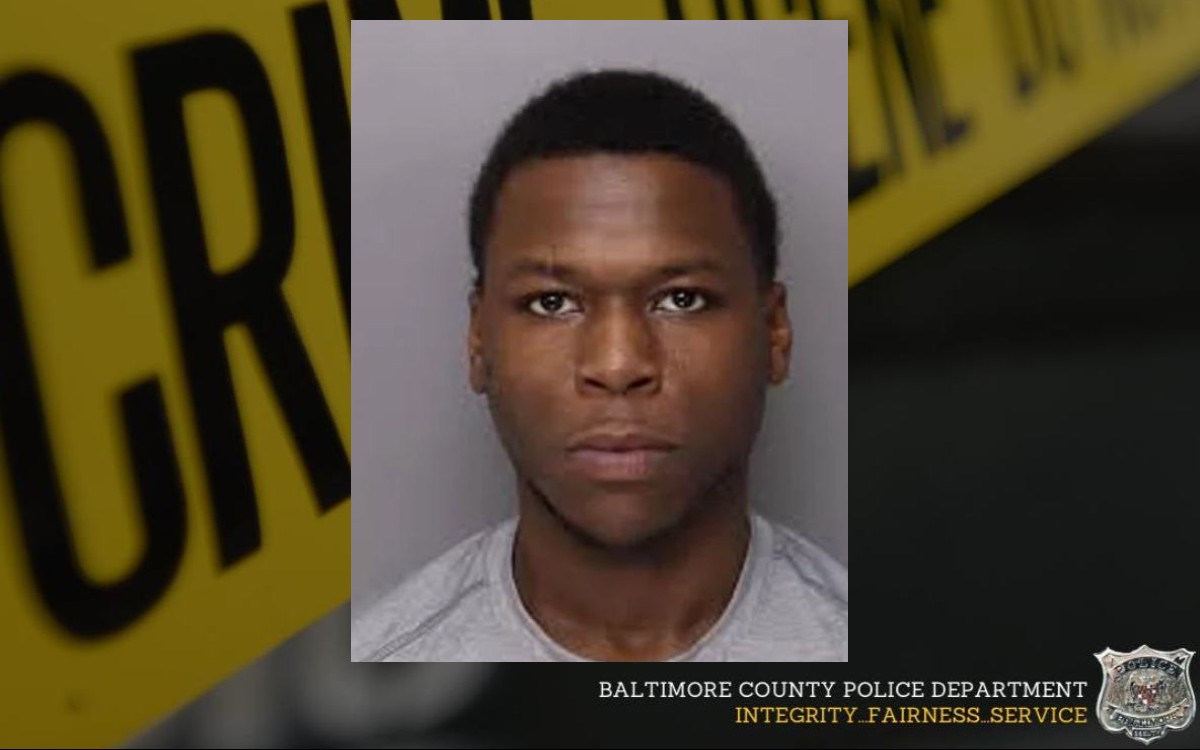
PARKVILLE, Md. — Baltimore County Police announced Thursday they had arrested and charged a 22-year-old man with first-degree rape, first-degree assault, armed robbery, and firearm-related charges in addition to other offenses.
According to a statement released by police, Jalen Green was arrested in connection with a sexual assault that occurred in the 3000 block of Putty Hill Ave. in Parkville on Sunday, February 11, 2024, at approximately 3:30 p.m.
Investigators say Green targeted a member of the transgender community utilizing a dating app.
According to the charging documents, the victim told officers that Green contacted her for sex in exchange for money. The victim told officers that Green pointed the gun at her and demanded money, the documents state.
Not having any cash, the victim said Green used her phone to send himself $100 in the Cash App and then stole two prescription bottles from the victim. According to police, Green then sexually assaulted the victim at gunpoint and recorded video on his cellphone.
The charging documents state that investigators recovered evidence from the scene, including DNA. A search warrant was being sought to recover potential evidence on Green’s cellphone, the documents state.
Investigators seek to hear from anyone who may have been in contact with Green.
The Baltimore County Police Department’s Special Victims Unit is seeking information from anyone who may have been in contact with this subject. Detectives can be contacted at 410.887.2223.
If you are a survivor of a sexual assault, you can contact the Sexual Assault Hotline for crisis counseling by calling 410-828-6390. The Special Victims Unit also works with TurnAround who can be contacted by calling 410-377-8111.
Green is being held without bond at the Baltimore County Detention Center.
Maryland
Maryland could become next state to pass trans sanctuary law
Maryland Senate Finance Committee heard SB119 that would establish Maryland as a sanctuary state for trans people fleeing other states

By Erin Reed | ANNAPOLIS, Md. – On Thursday, Maryland’s Senate Finance Committee heard Senate Bill 119, a bill that would make Maryland a sanctuary state for transgender individuals and providers fleeing other states.
The bill would add gender-affirming care to a law passed last year that shields abortion patients and providers from out-of-state prosecution and investigations. Many more individuals testified in favor of the bill than against it, including Maryland state government officials who remarked on its necessity.
If passed, the law would make Maryland the 12th state, not counting the District of Columbia, to do so.
The bill includes several protections for transgender individuals. It would block the enforcement of out-of-state subpoenas for medical records and information on transgender patients who seek care within Maryland’s jurisdiction.
It would also prevent foreign financial judgments from other states attempting to sue Maryland providers. It would prohibit liability insurers from taking adverse action against healthcare providers for providing gender affirming care.
Additionally, it would block the extradition of individuals who have received gender-affirming care in Maryland. Lastly, it specifies that the state cannot use state funds to provide “information, spend time or money, or use state facilities, state property, state equipment, state personnel, or other state resource” in aiding investigations around gender affirming care – a virtually total barring of any enforcement of anti-trans laws in the state.
The state joined several others in providing protections for patients and providers when Governor Wes Moore signed an executive order in June to enact many of these policies. Heather Forsyth spoke on behalf of the office of the Maryland Attorney General in favor of the bill at the hearing, stating that this bill would go farther than that executive order: “It’s both critical and urgent… The executive order provided some protections, but it couldn’t offer many of the protections this legislation would provide.”
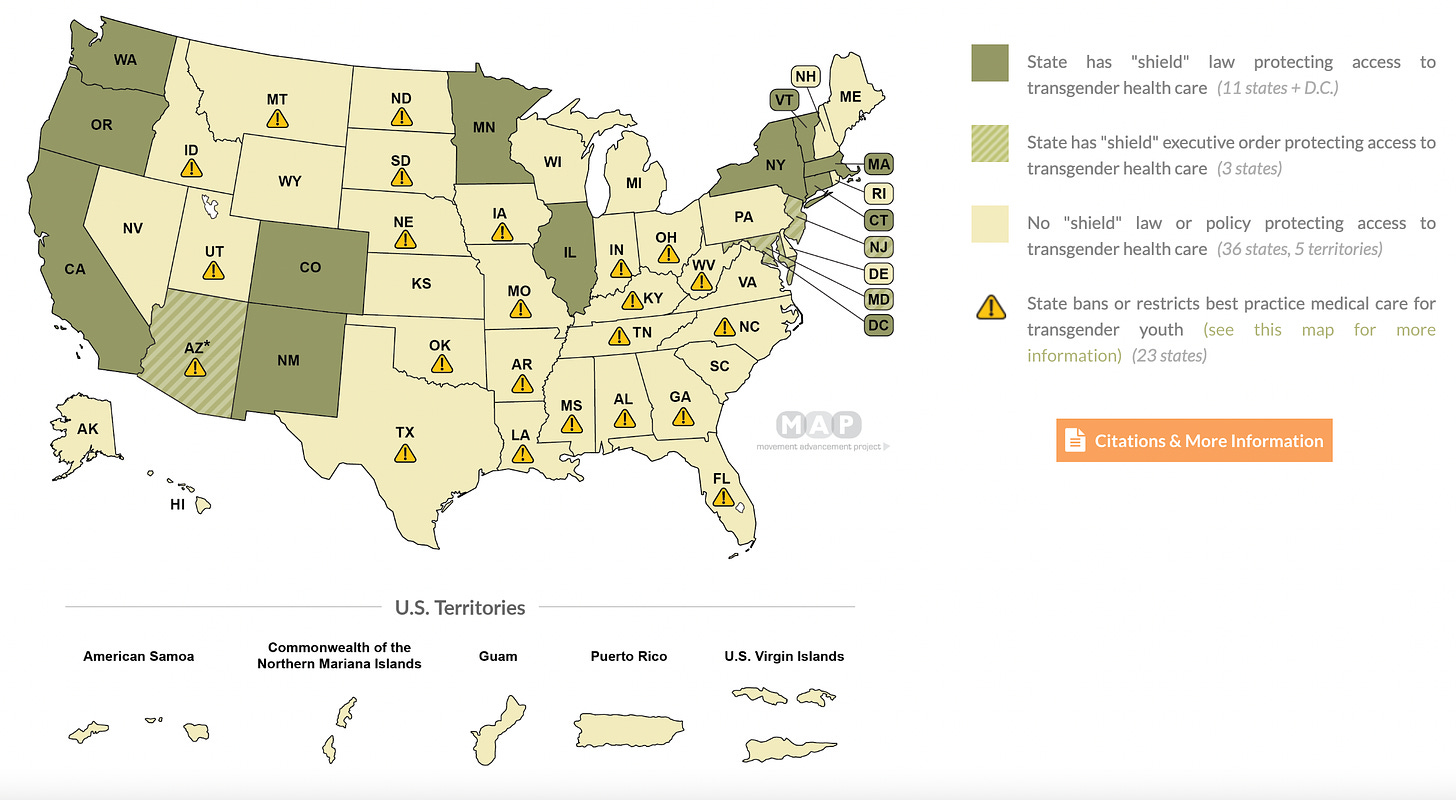
Among the things she stated this bill would do beyond Governor Moore’s executive order:
- It would prevent liability insurance from taking adverse action on providers for providing gender affirming care.
- It would ensure license and regulatory boards could not take adverse actions for providing gender affirming care.
- It would place limits on subpoenas, wire tapping, ex parte and foreign judgments that target care provided within the state of Maryland
- It would go into law and protect transgender people regardless of who holds the Governor’s office.
Forsyth was not the only one to speak on behalf of the bill from the Maryland executive branch. Ryan Moran, representing the Maryland Department of Health, also testified to the importance of the bill, emphasizing that “Maryland remains a leader in supporting trans people’s rights to equitable healthcare and safety.” Moran highlighted the growing list of Republican states banning gender-affirming care as a reason for the bill’s necessity: “These list of states are growing… the states include criminal penalties against health officials providing gender-affirming care.”
The hearing also saw testimony from representatives of large hospitals and medical associations. Michael Huber, representing Johns Hopkins University and School of Medicine, asserted that gender-affirming care is “medically necessary, lifesaving, evidence-based, and age-appropriate healthcare.”
Pam Kasemeyer, testifying on behalf of the state medical society, the Academy of Pediatrics, the Mid-Atlantic Community Health Centers, and the American College of Obstetricians and Gynecologists, stated that the bill was needed due to “legal challenges and fear” from out-of-state actors targeting care in the state.
These challenges and investigations are indeed unfolding. Recently, Attorney General Ken Paxton made national headlines by subpoenaing the medical records of patients who traveled from Texas to Seattle Children’s Hospital for gender-affirming care. Similar subpoenas have been issued to gender-affirming care clinics in other states.
Meanwhile, 19 Republican state attorneys general have signed a letter asserting their right to medical information from other states, indicating that this tactic may be employed against both transgender individuals and those seeking and providing abortions moving forward.
Only a three people testified against the bill – one concerned citizen, a representative from the Maryland Family Institute, a religious organization, and Health Choice Maryland, an anti-vax organization.
The bill will need to pass a committee vote before moving to the full senate floor in the coming days.
****************************************************************************

Erin Reed is a transgender woman (she/her pronouns) and researcher who tracks anti-LGBTQ+ legislation around the world and helps people become better advocates for their queer family, friends, colleagues, and community. Reed also is a social media consultant and public speaker.
Follow her on Twitter (Link)
******************************************************************************************
The preceding article was first published at Erin In The Morning and is republished with permission.
Maryland
Maryland House committee kills anti-trans youth sports bill
State Del. Kathy Szeliga (R-Baltimore County) introduced House Bill 47. More than a dozen other Republican lawmakers co-sponsored the measure
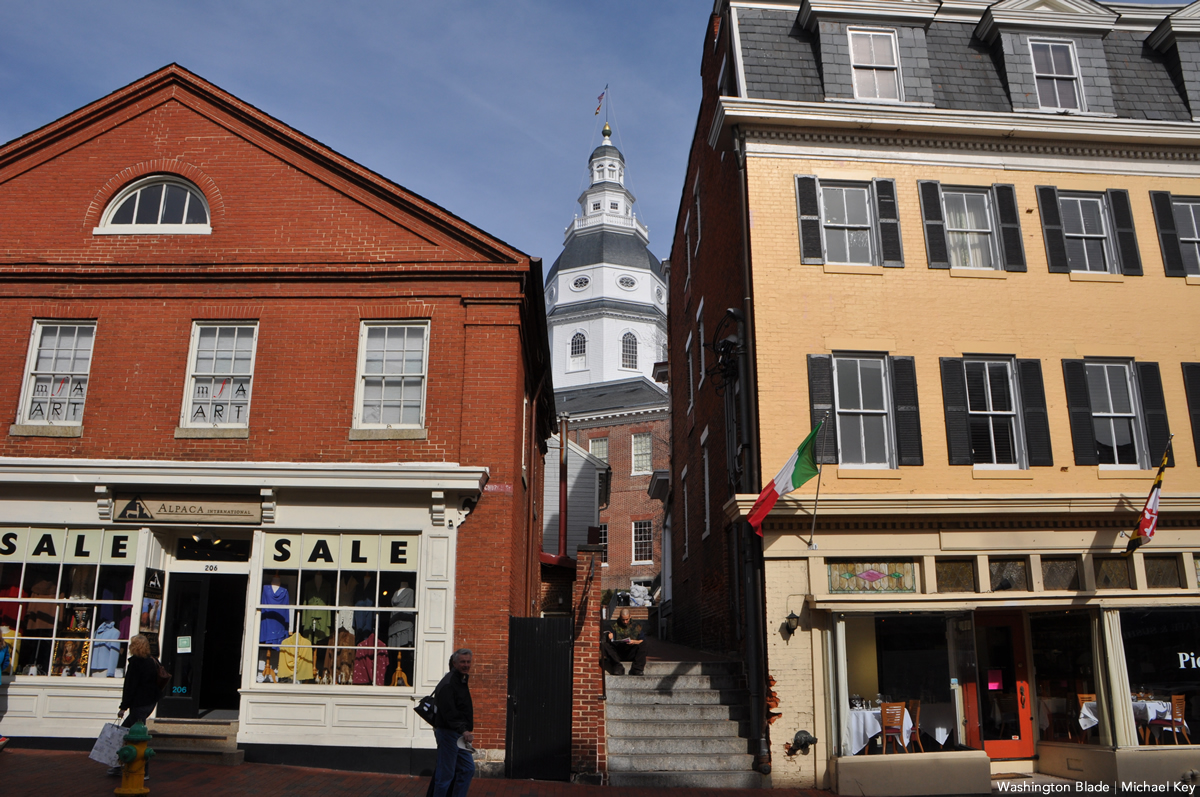
ANNAPOLIS, Md. – A Maryland House of Delegates committee on Thursday killed a Republican backed bill that would have barred transgender children from joining school sports teams consistent with their gender identity.
State Del. Kathy Szeliga (R-Baltimore County) introduced House Bill 47, which is also called the Fairness in Girls’ Sports Act. More than a dozen other Republican lawmakers co-sponsored the measure.
The House Ways and Means Committee on Wednesday held a hearing on HB 47. State Dels. Joe Vogel (D-Montgomery County) and Kris Fair (D-Frederick County), who are both gay, are among the committee members who voted to kill the measure.
“Yesterday, my committee heard testimony on the Save Women’s Sports Act to ban transgender children from playing in high school sports,” said Vogel on his X account after the vote.
“Just now I moved unfavorable on the bill and the majority of my colleagues joined me in voting it down,” he added. “The bill is dead.”
Yesterday, my committee heard testimony on the Save Women’s Sports Act to ban transgender children from playing in high school sports.
— Joe Vogel (@JoeVogel_) February 16, 2023
Just now I moved unfavorable on the bill and the majority of my colleagues joined me in voting it down.
The bill is dead.
The Senate Education, Energy and the Environment Committee on Feb. 7 is scheduled to hold a hearing on an identical bill, Senate Bill 381, that state Sen. Mary Beth Carozza (R-Somerset, Worcester and Wicomico Counties) introduced in the Maryland Senate.
The House Ways and Means Committee in 2022 killed the Save Women’s Sports Act that Szeliga introduced during that year’s legislative session.
Maryland
Man sentenced in murder of Maryland trans woman to 48 years
Prosecutors provided details about the case that had not been publicly disclosed at the time of Price’s arrest two and a half years ago
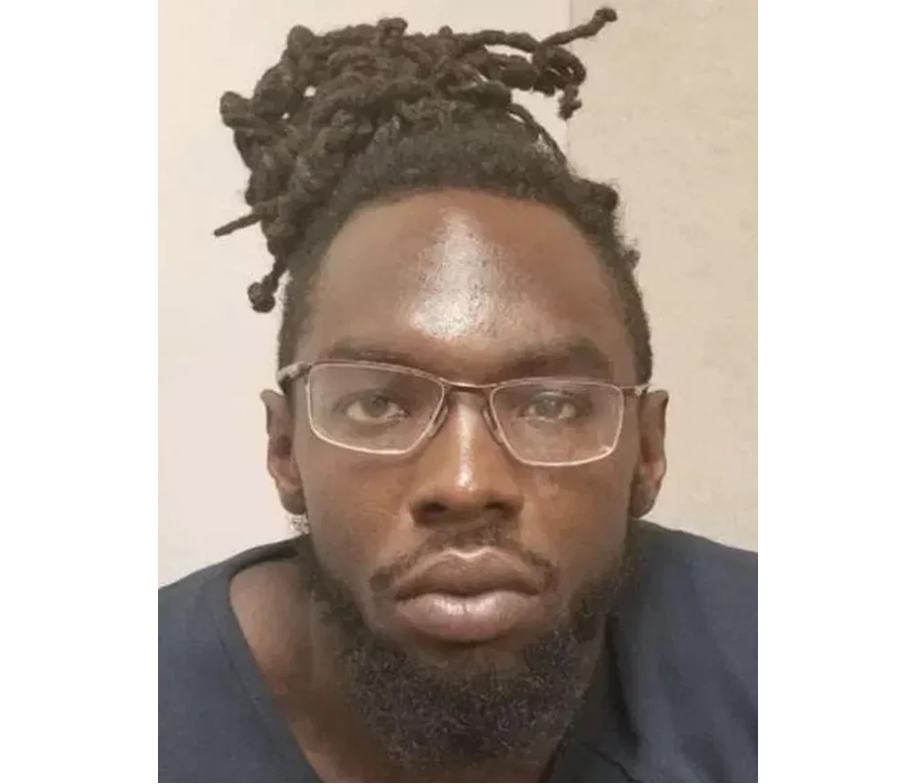
UPPER MARLBORO, Md. – Prosecutors in Prince George’s County, Md., announced in a virtual press conference on Jan. 24 that the man charged with the July 17, 2021, murder of transgender woman Taya Ashton, 20, who was found shot to death in her Suitland, Md., apartment, was sentenced on Jan. 10 to 48 years in prison.
Assistant PG County State’s Attorney Sherrie Waldrup, the lead prosecutor in the case, said the sentence came after DeAllen Price, 29, pleaded guilty in October to Second-Degree Murder and Use of a Firearm in the Commission of a Crime of Violence. Price has been held since the time of his arrest less than a week after the murder.
Waldrup and PG County State’s Attorney Aisha Braveboy, the county’s lead prosecutor, provided details about the case that had not been publicly disclosed at the time of Price’s arrest two and a half years ago.
“What we know in this case is that the victim in this case and the defendant knew each other,” Braveboy said at the press conference. “They had an intimate relationship with one another. And an argument ensued during one of their meetings in July of 2021,” Braveboy continued. “And from there, unfortunately, their argument led to this tragedy.”
Waldrup called the case highly complicated because up until the time of the sentencing the motive for the murder remained unclear, even though many in the community believed it was based on Taya Ashton’s status as a transgender woman.
“We didn’t have any definitive evidence to show that until sentencing,” Waldrup said, adding that there were no witnesses to the incident and initial evidence was mostly circumstantial. “And when it came time for the sentencing, the defendant did offer that clarity, if you will, as to why this happened,” she told news conference attendees.
“He spoke at sentencing and told the court that he was engaged in an intimate relationship with Taya,” the prosecutor said. “And that evening was when he first learned that Taya was not born a female. And in response to that he reacted and shot her.”
Added Waldrup, “That was just a chilling thing to hear. It’s horrifying, it’s unacceptable. It is certainly not an excuse or justification for what happened to Taya.”

(Photo courtesy Stuart Anderson)
In response to a question from the Washington Blade asking if defendant Price might have been attempting to invoke the so-called trans panic defense, which defense attorneys have used in murder cases where the victims were transgender or gay or lesbian, Waldrup said neither Price nor his attorney used that defense.
She noted that in Maryland, like in many other states and D.C., the “panic” defense is prohibited by law when attempted to be used based on a victim’s gender identity, sexual orientation, race, ethnicity, religion, and other factors.
“Taya was somebody who was loved by her family,” Waldrup said. “She loved her family immensely. Taya was somebody who, although being part of what some may consider a marginalized community, was not marginalized in how she interacted with Prince George’s County,” Waldrup concluded.
“So, today, what we want to send is the message that regardless of how someone wants to live or chooses to live, because this is a free country,” Braveboy told the press conference.
“People can live how they want to live and that does not give an individual the right to commit violence against them or to take their life, period. End of story,” she said. “And when they choose violence, we will hold them accountable. And today, and now, Mr. Price has been held accountable.”
Braveboy said she and her team of prosecutors have and continue to be committed to aggressively prosecuting crimes targeting members of the LGBTQ community. She noted that her office created an LGBTQIA+ Task Force to provide support on matters impacting that community.
Others who spoke at the press conference included PG County Council member Krystal Oriadha, PG County Deputy Police Chief Zachary O’Lare, and Renee Lau, an official with Baltimore Safe Haven, a transgender and LGBTQ services organization.
-

 a&e features2 days ago
a&e features2 days agoMusical Mondays, a mainstay in WeHo nightlife, celebrates 16 years
-
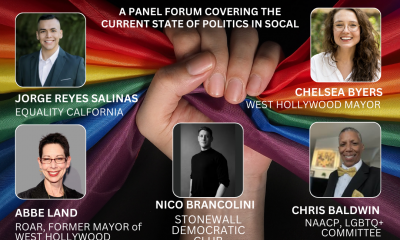
 Features5 days ago
Features5 days agoLos Angeles Blade kicks off Free Community Event Series with an informative political panel of government and advocacy group leaders
-

 Arts & Entertainment1 day ago
Arts & Entertainment1 day ago‘Bring it to Brunch’ returns to West Hollywood
-

 California15 hours ago
California15 hours agoSouth Park provides green space to a predominantly Latino community
-

 Myanmar2 days ago
Myanmar2 days agoLGBTQ+ advocacy group joins Myanmar earthquake relief effort
-

 a&e features2 days ago
a&e features2 days agoPeppermint thrives in the spotlight
-

 National10 hours ago
National10 hours agoLatest update in the case of wrongfully deported gay, Venezuelan make-up artist






